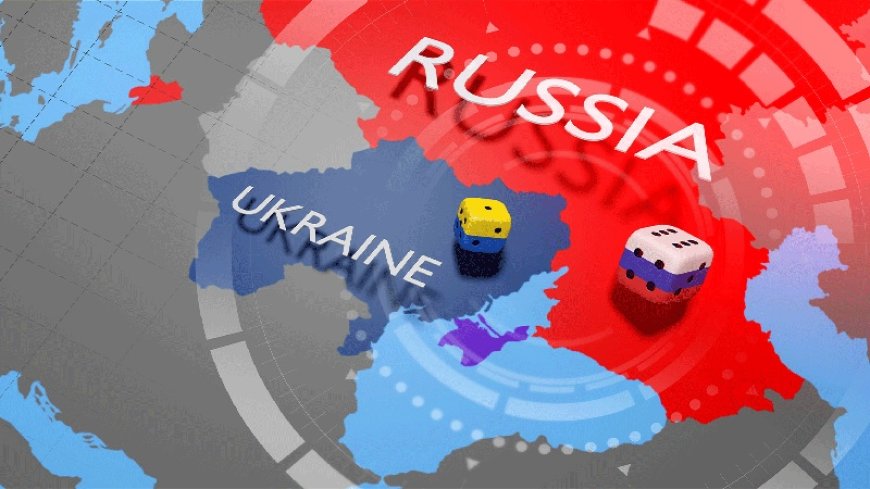Munich Security Conference a yearly meeting place of top warmongers
Every year in February, around 500 guests debate the most important challenges for international security in the city of Munich in Germany. The history of the Munich Security Conference began in 1963, it was the height of the Cold War and the time of the Berlin and Cuban crises. Over 700 people are expected to attend the three-day summit this year, including representees from USA, NATO and EU leaders. Thus far, discussions have primarily focused on whether or not to supply Ukraine with more money, modern weapons, and ammunition.

US military spending in Ukraine reached nearly $50 billion in 2022
The U.S. Defense Department announced[i] in early January 2023 that it is giving a further US $3.1 billion in military aid to Ukraine in support of its war against the Russian invasion. This new spending package includes a long list of advanced military weapons systems and artillery. The U.S. has not formally declared war against Russia, but the battlefield in Ukraine serves as a classic case of a proxy war, waged without a formal declaration. U.S. support for Ukraine has been a constant throughout the first year of conflict, most recently extending as far as inviting Ukrainian forces to train on an Air Force system in the U.S. The urgency and scope with which the United States is sending military aid to Ukraine demonstrate the importance placed on the outcome of this war by the United States and its allies. The United States has offered Ukraine with unprecedented levels of military support[ii], especially in light of the country's involvement in previous conflicts in recent memory. The United States spent several times as much on military aid during the Cold War as it has on Ukraine, but those wars lasted for many more years. It is estimated that the United States spent $138.9 billion on the Vietnam War between 1965 and 1974, which is nearly equivalent to one trillion dollars in today's money. Disbursement of the majority of the US aid to Ukraine is expected to take place over several years. Although some of the funds won't be available until 2030[iii], the vast majority will be spent that year. This is due to the fact that the majority of aid is earmarked towards the acquisition of as-yet-undeveloped weaponry in the United States and elsewhere. Even if hostilities stop quickly, the United States plans to help Ukraine rebuild its military throughout the course of this lengthy time period.
At the Munich Security Conference[iv], Ukrainian Government Vice President Kubrakov advocated that Ukraine be allowed to use controversial weapons - including cluster munitions. Their use is outlawed under international law. He understands that use is limited by conventions, Kubrakov said. But the U.S. and several other allies have millions of rounds of them - and Ukraine may one day get such munitions anyway. Ukraine's Foreign Minister Dmytro Kuleba said there were no legal obstacles preventing Ukraine from using cluster munitions, according to the dpa news agency. Ukraine is not a party to the Oslo Convention, which bans cluster munitions, he said. NATO Secretary General Jens Stoltenberg[v] dismissed the discussion of cluster munitions and phosphorus incendiary weapons. "NATO has neither recommended nor supplied these types of weapons," Stoltenberg said.
The real purpose which no one cares
The Munich Security Conference must be prepared to confront difficult questions about how society arrived at this point. The international community and, in particular, the permanent members of the United Nations Security Council have disregarded international law for many decades. Failure to hold those responsible for human rights violations accountable has resulted in an increase in similar crimes and violations. If there is any hope of establishing a system capable of preventing, stopping, and redressing the most serious crimes of concern to the international community as a whole, leaders must acknowledge that their narrowly defined interests and failed policies have contributed to this cycle of mass atrocities, conflict, and human suffering. Meanwhile[vi], anti-imperialist and workers’ organizations in Europe have heavily criticized their government’s heavy political and financial investment in fueling the war effort in Ukraine, and its refusal to address the ongoing cost of living crisis in their countries. Opinion polls also indicate that a majority of the EU population supports immediate negotiations to end the war. Workers and their unions in public sector services and other sectors have already organized warning strikes this year demanding higher wages to cope up with soaring inflation.
[i] https://www.defense.gov/News/Releases/Release/Article/3261263/more-than-3-billion-in-additional-security-assistance-for-ukraine/
[ii] https://www.cfr.org/article/how-much-aid-has-us-sent-ukraine-here-are-six-charts
[iii] https://www.csis.org/analysis/aid-ukraine-explained-six-charts
[iv] https://www.tagesschau.de/ausland/europa/ukraine-streumunition-101.html
[v] https://www.pravda.com.ua/eng/news/2023/02/18/7389958/
[vi] https://peoplesdispatch.org/2023/02/18/anti-war-groups-stage-protest-against-munich-security-conference/












































